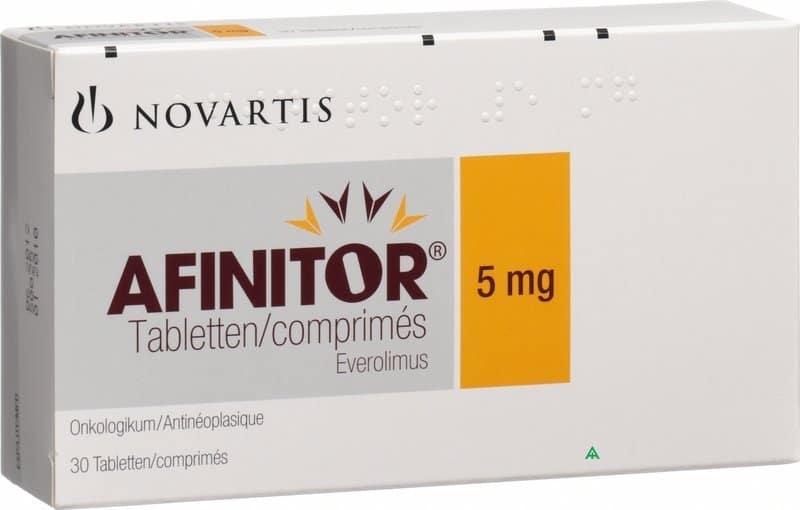
Exclusive: Novartis drug struck off cancer drugs fund
pharmafile | January 8, 2015 | News story | Sales and Marketing | Afinitor, Jevtana, NHS, NHS England, NICE, Novartis, Sanofi, everolimus
Novartis’ Afinitor (everolimus) will be removed from the Cancer Drugs Fund list when NHS England announces which drugs it can no longer afford, Pharmafile has learned.
The drug is currently included in the CDF list for HR+, HER2- metastatic breast cancer (where it was NICE-rejected last year), first or second line pancreatic neuroendocrine tumours (PNET), and second line advanced renal carcinoma.
But following NHS England’s decision to re-evaluate the drugs included in the list, Pharmafile has learned that the drug will be removed for all three indications, in a move a source described as ‘devastating for patients’ diagnosed with these cancers.
Novartis was informed of the likely outcome of the NHS England review at a meeting this week in advance of the formal publication of the revised CDF list, expected in the coming days.
The Swiss giant is ‘particularly disappointed’ that Afinitor has been de-listed for PNET, as the drug has not been assessed by NICE for this indication – meaning the company’s submission was assessed and evaluated in a drastically reduced timeframe compared with a standard NICE technology appraisal.
In a statement to Pharmafile, Novartis says the NHS England decision is based on methodology that is “unacceptable as it is insufficiently robust and transparent”, and which included “a crude cost element which does not reflect the true value of cancer drugs.”
“We strongly urge NHS England to stop the process now and enter into constructive dialogue with all stakeholders to find an equitable solution, including immediate steps to reform the NICE process.”
NHS England announced in November that it would re-evaluate the CDF-listed treatments, and evaluate a number of new drugs and indications, as well as the evaluation of a number of new drugs, to “assess the clinical benefit delivered in treating a patient with a drug, in relation to the cost of that drug”.
The £280m annual fund has paid for treatment for an estimated 55,000 people, but it is expected to be £100m over budget by the end of this financial year. It is set to end in March 2016 – though Labour has said it will grant a lifeline if elected.
Patients who are already receiving Afinitor, and other drugs currently included in the CDF list, will continue to receive treatment. But patients diagnosed after 12 March 2015 will not be funded for these treatments in England – while patients will continue to receive the treatments for all three indications in Scotland and Wales.
Individual funding requests, as exception cases, are still possible for drugs which fail to enter the CDF, or for some drugs which are removed from the list – although Novartis understands Afinitor will not fall into this category.
NHS England say no drug will be removed if it is the only proven systemic therapy for a specific type of cancer.
Several other companies that have been told their drugs will be removed from the CDF have also attacked the decision.
Sanofi’s Jevtana (cabazitaxel) is being removed as a funded treatment for second or third line advanced castrate resistance prostate cancer, as is Zaltrap (aflibercept) for second line metastatic colorectal cancer.
Sanofi’s general manager Tarja Stenvall, says: “We are hugely shocked and disappointed at this decision against Jevtana. We believe NHS England’s process for reviewing drugs currently listed on the Cancer Drugs Fund has been fundamentally flawed.
“It was arbitrary, inflexible and relied on very questionable evaluation criteria that were not independently verified or endorsed.”
Meanwhile, Eisai president Gary Hendler has spoken out after the company learned Halaven (eribulin) will no longer be funded for metastatic breast cancer in women who have previously been treated with two prior chemotherapy regimens for advanced disease.
“To say that we are disappointed by this decision would be a gross understatement, we are outraged” Hendler says. “We now call on the government to stop this arbitrary removal of drugs.”
Professor Peter Clark, an oncologist and chairman of the Cancer Drugs Fund, said: “We need to get maximum value for every pound we spend. We can no longer sustain a position where we are funding drugs that don’t offer sufficient clinical benefit when drugs that will do more for patients are coming on stream.”
Lilian Anekwe
Related Content

Novartis shares new data about Fabhalta for IgAN treatment
Novartis has announced new results from a pre-specified interim analysis of its phase 3 APPLAUSE-IgAN …

NICE recommends migraine treatment for NHS use
The National Institute for Health and Care Excellence (NICE) has shared draft guidance recommending AbbVie’s …

Sanofi shares phase 2b results for dermatitis treatment
Sanofi has shared positive results from part 2 of the investigational phase 2b STREAM-AD study …








